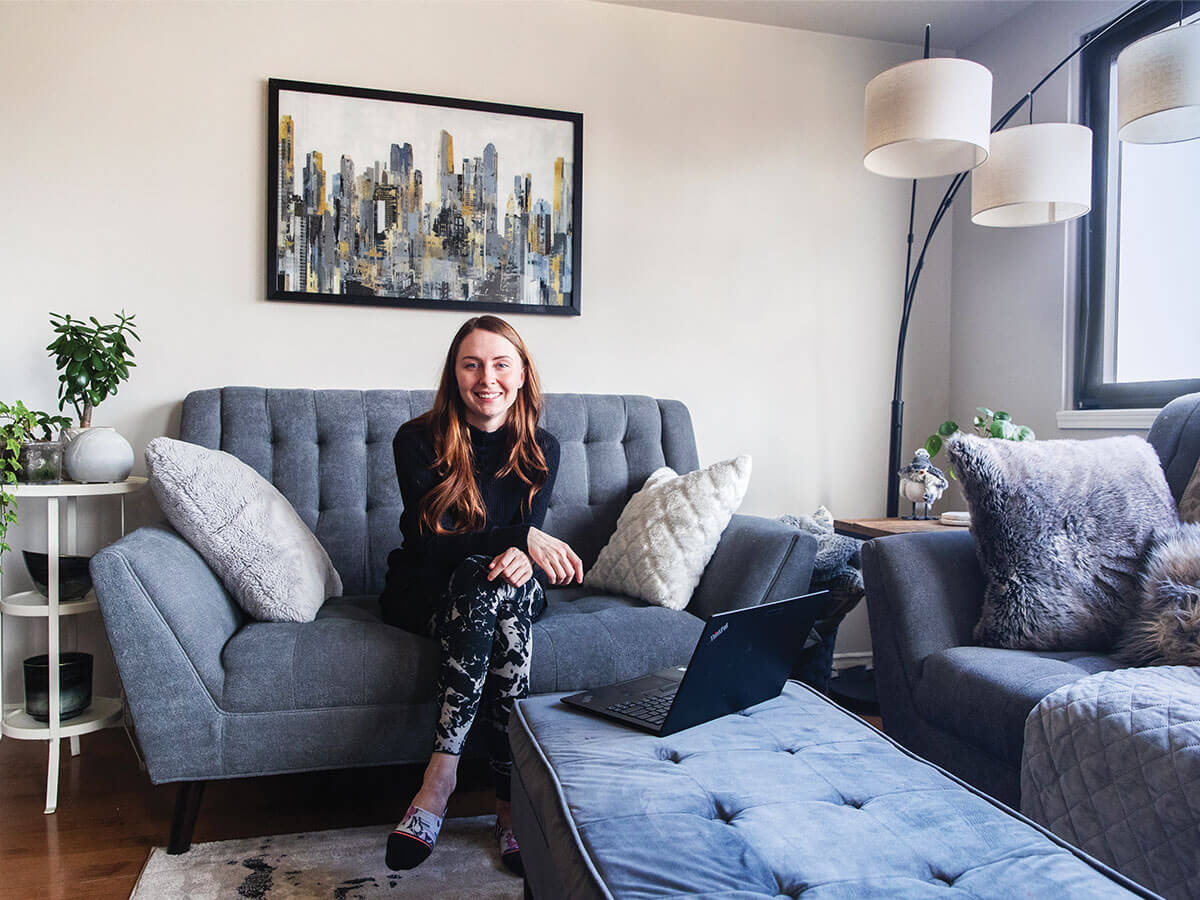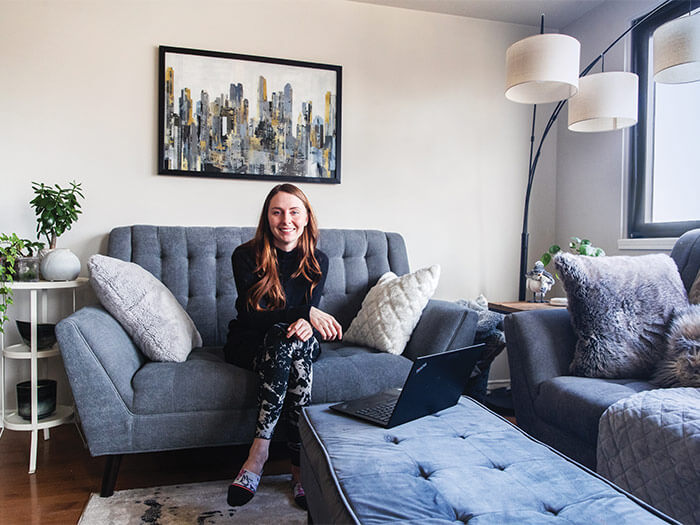
Nicole Hosler, 27
 Hosler prefers to audit by utilizing advanced data and analytics capabilities or machine-learning platforms than manually keying in invoices (Photograph by Curtis Comeau)
Hosler prefers to audit by utilizing advanced data and analytics capabilities or machine-learning platforms than manually keying in invoices (Photograph by Curtis Comeau)
When I first started at KPMG, I was working with clients in construction, energy and NPOs. After two years, I enrolled in a program that KPMG was starting in collaboration with Simon Fraser University’s Beedie School of Business, called KPMG Digital University. It prepares the company’s audit professionals for the future of audit through specialized courses on the latest advancements in technology, data, machine learning, artificial intelligence and other digital advances. I loved it. I learned how to take unstructured data and apply analytical procedures to it, about data visualization, about how to use technology to present information in a way that can bring value to our clients.
Now I spend half my time on client work that directly incorporates the use of data and analytics. It’s been rewarding to see how data can impact how we run our business. For example, in the old days, it took several hours or even days to create effective budgets. But now we can use data from previous years to forecast and develop current-year budgets in a fraction of the time. We also recently introduced a tool that allows our clients to upload data directly from their accounting systems, granting auditors read-only access. This tool is hugely important while we’re all working remotely. We used to be able to walk down the hall at our client’s office and collect what we needed from them in hard copy. Thanks to COVID, that’s not an option anymore.
“Automation will eliminate mundane tasks and give CPAs time in their day for more exciting work”
Automation has become a big part of my job, too. For example, KPMG has launched a cloud-based smart audit platform called KPMG Clara, which has built-in predictive analytic capabilities. We can automatically identify outliers based on the expectation for that industry. For example, if my client is a retailer, Clara will assess the general ledger for irregularities that are common in the retail industry.
Sometimes my family and colleagues joke that robots and automation will take over our jobs—and I hope they do. Because I’d rather audit by utilizing advanced data and analytics capabilities or machine-learning platforms than sit in front of my screen keying in invoices. Automation will eliminate those mundane tasks and give CPAs time in their day for more exciting work.
Recently, I began leading a monthly focus group with about eight colleagues at various levels, from staff accountants to partners. We discuss how data and analytics can provide value. I take these ideas away and work with engagement teams to implement them. I also create learning materials and tutorials for my colleagues about how to use data analytics with our existing tools. It’s empowering to help drive implementation and innovation in audit.
Working remotely this year has had its advantages and disadvantages. I love being in the comfort of my own home and getting more quality time with my cat, Ollie. But collaborating with team members is easier in person. I imagine our post-pandemic work life will be a mix of home and in-office.
Data and analytics make our processes more efficient for our employees. They also give auditors a better understanding of a client’s business by transforming data into something meaningful. Before long, I imagine everyone in accounting will be considered a specialist in data and analytics, because it’s becoming an integral part of the field.
NEXT GENERATION CPAs
Read about four other up-and-coming accountants hungry to make a difference.
Also, delve into insights emerging from CPA Canada’s strategic initiative, Foresight: Reimagining the Profession, and learn what the future holds for accounting.